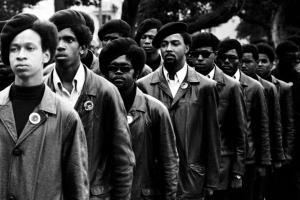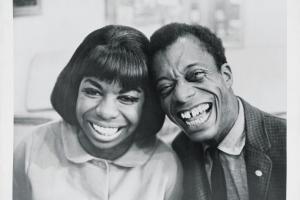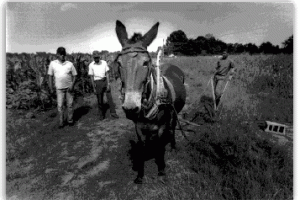The Black Panther Party and the “Undying Love for the People”
In These Times
 Recounts the short, complicated history of the Black Panther Party. Using remarkable black-and-white archival footage, the current voices of more than twenty former Panthers, a former FBI agent, several retired police officers, a number of Panther lawyers and community activists, and a collection of historians and accompanied by some soul stirring period music, the lessons to those engaged in today’s struggles against racism and for justice are there for all to see.
Recounts the short, complicated history of the Black Panther Party. Using remarkable black-and-white archival footage, the current voices of more than twenty former Panthers, a former FBI agent, several retired police officers, a number of Panther lawyers and community activists, and a collection of historians and accompanied by some soul stirring period music, the lessons to those engaged in today’s struggles against racism and for justice are there for all to see.










Spread the word